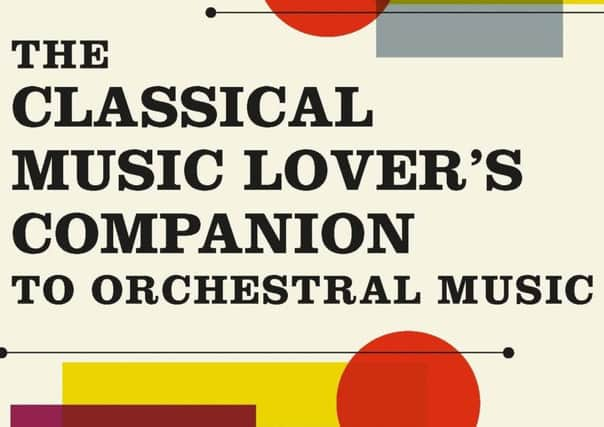Book review: The Classical Music Lover's Companion to Orchestral Music, by Robert Philip


Far better, then, to consult a publication like Robert Philip’s 900-page The Classical Music Lover’s Companion To Orchestral Music, which is one of the most comprehensive, intellectually sound publications of its type I have seen for some time.
Philip, a former lecturer and BBC music broadcaster who lives in Edinburgh, has previous form as an assiduous researcher and writer. His earlier book, Early Recordings And Musical Style, is fascinating in its assessment of instrumental performance in early 20th century recordings and how important they are as documents that preserve the evolving performance styles of the early gramophone age.
Advertisement
Hide AdIn this new book, which has been painstakingly prepared over a number of years, Philip turns his attention to more than 300 orchestral works dating from late 17th century Corelli and Vivaldi to 20th century Britten and Tippett. The scale is breathtaking, the choice both comprehensive and representative, but most importantly the scholarship is profound, perceptive and concise, with a directness of language that completely avoids pomposity. That applies to the obvious contenders for inclusion – the Mozarts and Beethovens of the musical firmament – and to the less well-known, so the language explaining the ear-teasing complexities of Webern’s 12-note technique in his 1928 Variations, for instance, is every bit as friendly and familiar as that bringing fresh insight to the symphonies and concertos of Brahms, Tchaikovsky, Mahler and Rachmaninov. Philip’s wide-ranging enthusiasms draw the reader in; they never frighten with pointless jargon.
This volume, then, is an invitation to every music aficionado to explore familiar and new territory with equal ease.
Mainstream enthusiasts will relish Philip’s refreshing thoughts on the core orchestral classics, but they’ll also find such exciting new avenues to investigate as the multilayered cacophony of Charles Ives’ Symphony No 4, the café culture influencing Darius Milhaud’s gauche delights, or the psychedelic excesses of Alexander Scriabin.
It’s not a book that demands to be read from cover to cover. Best to keep it handy and dip in whenever the fancy takes you. Set out alphabetically by composer, anything from Bach to Webern is easy to locate. If I didn’t already have a copy, I’d definitely put this treasure of a tome on my Christmas list. - Ken Walton
The Classical Music Lover’s Companion to Orchestral Music, by Robert Philip, Yale University Press, £35